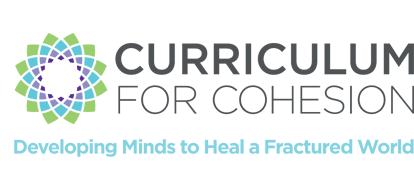

Submission to National Curriculum Review
A Broader, Truer History for All
Our submission concurs with the general conclusion of Sir David Cannadine’s recent book, The Right Kind of History, that the current National Curriculum for History is in many ways good but requires more teacher-time for its delivery. However we recommend some carefully targeted changes that will make use of the full depth and breadth of important historical episodes to create a curriculum that is both broader and truer, and thereby more inclusive.
The Executive Summary of our submission is reproduced below. The full text is at this link.
EXECUTIVE SUMMARY
History education has a key role to play in creating the informed, critical attachment of young people to the nation and in creating the feeling that young people belong and can participate in national life.
The Curriculum for Cohesion Team, comprising Muslim and non-Muslim academics and community leaders, believes that it is essential that the true socio-cultural breadth of important historical events is represented on the curriculum and taught in the classroom. This is on the principle that the more accurate the History that is taught, the more socially inclusive it will be. This report applies this principle to the case of Muslim youth on the understanding that what is of benefit to the historical understanding of Muslim young people must benefit the understanding of all children in English schools.
The majority of Muslim pupils in English schools find their National Curriculum History (NCH) learning interesting and believe that they derive useful knowledge from it. This includes elements of compulsory British history as well as elements that currently come under the Diversity core concept such as Slavery and the Holocaust.
Muslim pupils also feel, as a group, that compulsory school History is an important tool for engendering essential knowledge for the critical British citizen and that History at school provides an important forum for reflecting on complex ethical, social and moral issues.
However, at present the positive impact of compulsory school History is weakened by the perception that History is not as useful or important as other subjects in terms of employment. It also suffers from the fact that Muslim pupils’ Islamic heritage, which this and other research shows is of great importance to c.90% of Muslim pupils, is absent from the curriculum as delivered in classrooms despite the presence of optional Islamic history modules on the curriculum itself.
This absence is connected to the fact that teachers do not understand how to connect the achievements of Islamic civilisation with the important ‘big’ curricular themes of social and technological change. The subject also suffers from a deficit of value at school and a deficit of Muslim parental support.
To remedy this situation, this report suggests a five–part strategy to maximise the benefits of compulsory History for all pupils:
- Re-totalising partial and incomplete episodes taught on NCH by incorporating more international history into the core substance of NCH, including the British national narrative.
- Forging a history of the present by ensuring that important current affairs are set in a deep and complex historical perspective to help pupils make sense of the world around them…
- …with an eye to their future by showing how core historical skills such the retrieval, interpretation and presentation of information are vital skills that are valued by employers;
- Re-imagining an intrinsic History-for-Citizenship. This means ensuring that all pupils, Muslim and non-Muslim, leave school with a strong, detailed understanding of the changing historical relationships between Parliament, the People and the Crown. This will help engender a sense of national responsibility. Also all pupils, Muslim and non-Muslim, need to understand how and why ideas of religious tolerance and secularism came about in Britain.
- Creating communities of historical learning to connect school-based curriculum learning with family and out-of-school histories through the mediation of interested adults.
In keeping with the general approach above, three limited but essential pieces of Muslim-related historical knowledge need to be woven seamlessly into the curriculum. In order of priority, all pupils should know that:
- Muslims, and also non-Muslims working within the framework of Islamic civilisation, made a vital contribution to the preservation of knowledge and the progress of science and civilisation. The contribution of female Muslim scientists should be included in this understanding;
- The Muslim presence in Britain and the interaction of Britain with the Muslim-majority world is part of a long-standing relationship between Britain and Islam that stretches back long before the period of post-World War 2 migration, reaching as far as relations between Anglo-Saxon and Viking England with Umayyad Spain in the 9th century;
- Muslims contributed in great numbers and with great commitment to the defeat of tyrannical regimes by free peoples in the First and Second World Wars and that these wars had great repercussions for the Muslim-majority world.
The report details how these three areas of understanding would be incorporated into the curriculum in a harmonious way at Key Stages 1, 2, 3 and 4 in a way that improves the History learning of all pupils. These areas of integrated understanding about Islam and Muslims should, in our opinion, replace the existing optional modules of Islamic History which are regarded by pupils and teachers alike as irrelevant and ‘bolt-on’ and are seldom, if ever, delivered.
We believe that this strategy with these three added strands of historical knowledge would significantly increase the feelings of self-worth and national belonging of Muslim youth and help address the negative stereotypes that some non-Muslim young people hold about Muslims.
Even more importantly, it will increase the depth, breadth and relevance of History for all pupils in English schools, helping to equip them with historical knowledge, transferable information skills and inter-cultural understanding that will be essential for globalised life in the 21st century.